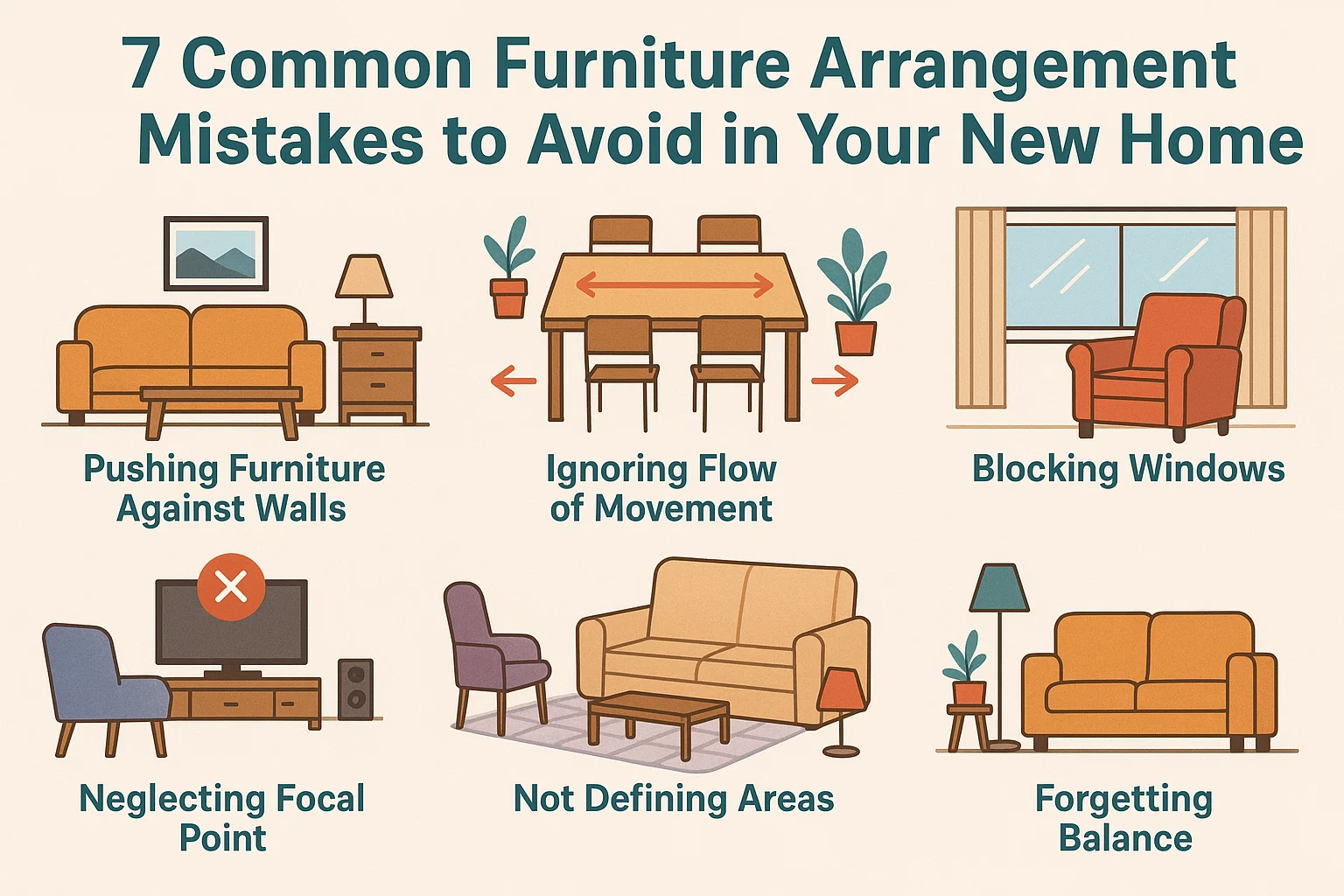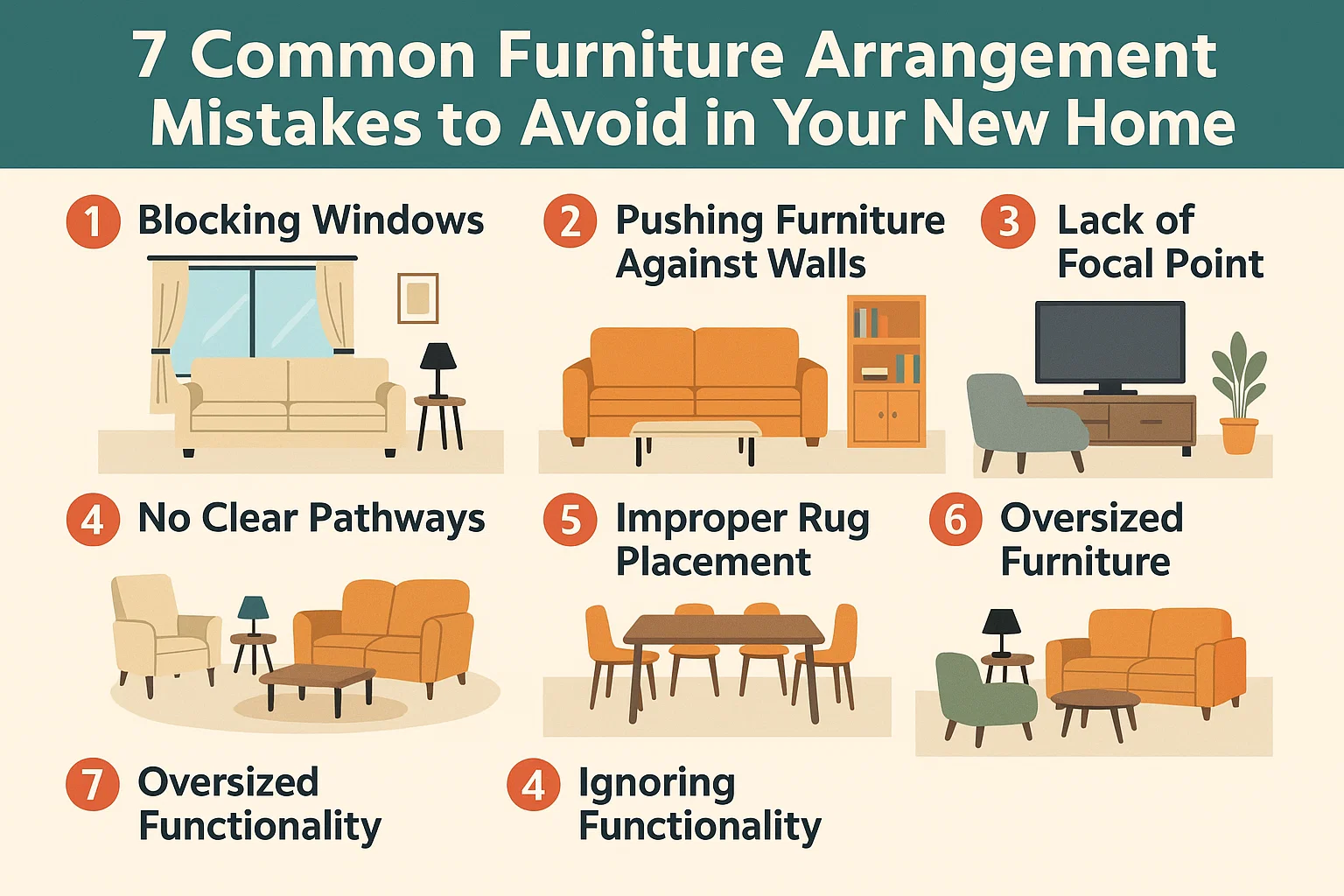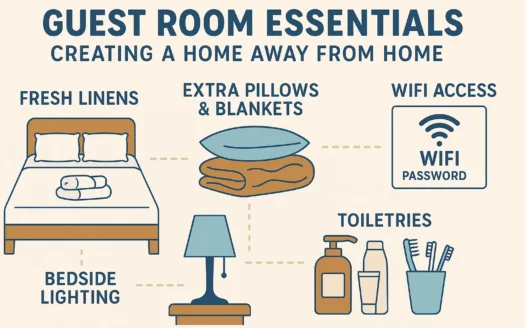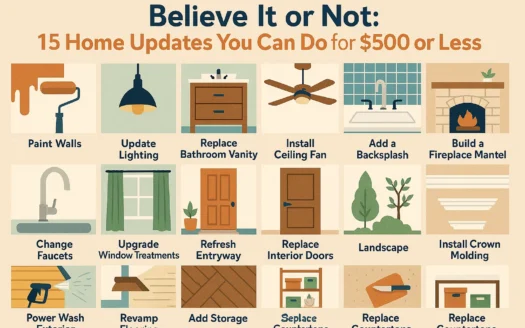7 Common Furniture Arrangement Mistakes to Avoid in Your New Home

7 Common Furniture Arrangement Mistakes to Avoid in Your New Home
Arranging furniture in your beautiful, brand new home is an exciting, and sometimes daunting, task. The possibilities seem endless, giving you the perfect chance to design a space tailored to your personal style, your needs for your home, and your Pinterest board. Interior design is an imperfect art form and you want a balanced space that isn’t cluttered or barren, and can easily get off track. Here are common furniture arranging mistakes to avoid:
Mistake #1: Jumping in Without a Plan

Avoid the temptation to start arranging furniture without considering how you’ll use the space. Ask yourself:
“How many people do I want to sit? What activities will be taking place?”
Use tools like Homestyler or Sketchup to experiment with layouts before committing.
Mistake #2: Forgetting About Focal Points

Arrange furniture to highlight architectural features or create intentional focal points. Design experts recommend:
“Orient seating to face natural focal points like windows or fireplaces. Use statement lighting or large-scale art to create visual interest.”
Mistake #3: Creating Imbalance

Avoid lopsided spaces by distributing visual weight evenly. Combine pieces with similar proportions and limit small decor items that create clutter.
Mistake #4: Missing the Point

Prioritize functionality over trends. Consider:
- Traffic flow patterns
- Durability needs
- Family lifestyle requirements
Mistake #5: Leaving a Void

“Floating furniture creates conversation areas and makes spaces feel more intimate than pushing everything against walls.”
Mistake #6: Overlooking the Importance of Scale

Test furniture proportions by placing your largest piece first. Ask:
“Does this look too big or too small in the space?”
Mistake #7: Ignoring Lighting Considerations
Remember to plan for both natural and artificial lighting. Layer ambient, task, and accent lighting to create functional and inviting spaces.
With careful planning and attention to these common pitfalls, you can create a home that’s both beautiful and functional. Remember that good design evolves over time – allow your space to grow with your needs and experiences.




